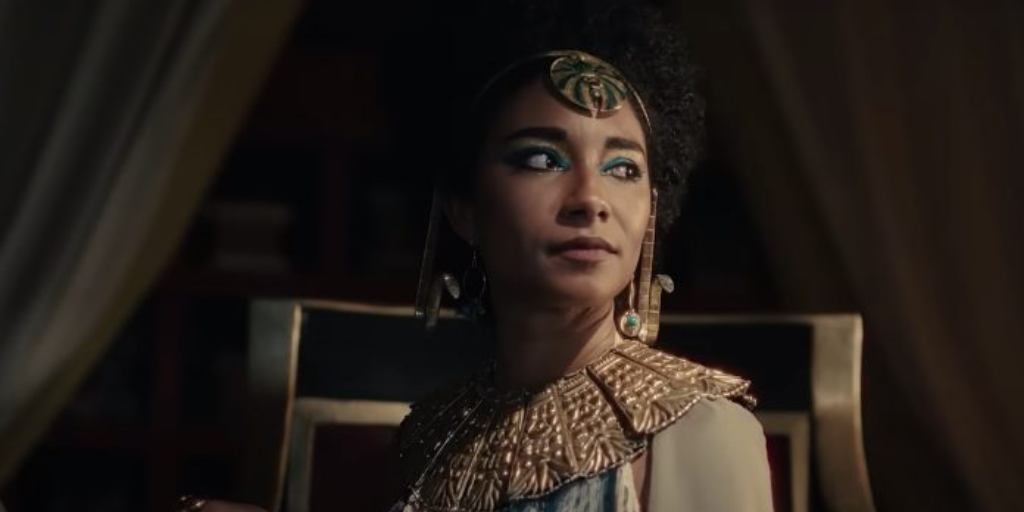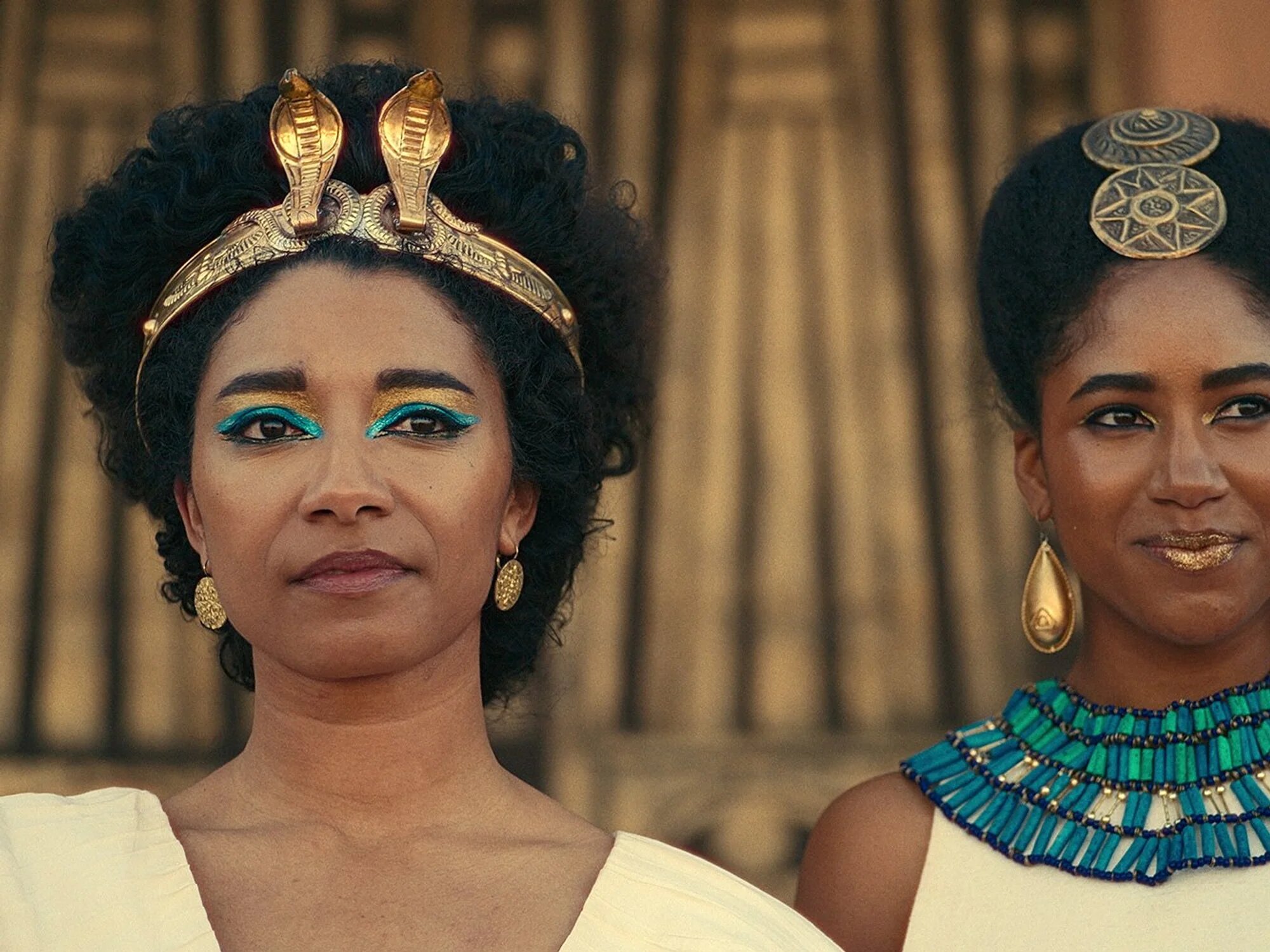As Jada Pinkett-Smith’s voice floats in the background of a succession of images representing historical figure Queen Cleopatra VII of Egypt, viewers are introduced to the queen’s story in a sequence of scenes brimming with a dramatic undertone.
Professor Shelley P.Haley, the first interviewee, then sets the tone for the rest of the documentary by sharing an anecdote from her schoolgirl days when her mother told her not to believe what she was told at school, and that Cleopatra was actually black.
The rest of the documentary goes on to reiterate that statement in more subtle ways — it almost becomes an underlying theme to the narrative with disproportionate weight consistently placed on the queen’s appearance, rather than focusing on her achievements.
Netflix’s Queen Cleopatra is a documentary made of four episodes that is part of a larger series, African Queens, which aims to celebrate prominent historical women in African history.
Produced by Jada Pinkett-Smith, Queen Cleopatra gives audiences a glimpse into the life of the Ptolemaic ruler through enactments and expert interviews. The documentary which was released on 10 May, 2023 sees biracial British actress, Adele James, play the role of the Ptolemaic queen.
Hollywood-Themed Theatrics?
The date is 51 BC, a young Cleopatra sits at a table in the Great Library of Alexandria sifting through the pages of a book as she takes small bites of food parcels. The first scene introduces the audience to a Cleopatra who is studious and seemingly more interested in her books than in power.
Her quest for knowledge is interrupted when one of her advisors hurries into the library and utters two foreboding words: “it’s time.”
The music intensifies, Cleopatra’s features morph from serenity to an expression fraught with worry, and the two women rush out of the library. They are headed to the bedside of the queen’s father, Ptolemy XII, who will impart wisdom as he utters his final words.

The documentary has all the makings of a Hollywood drama with intense pauses, a sense of urgency, and romanticised drama.
The production gives viewers what they ask for: entertainment. However, for those looking for an accurate representation of history, the documentary is lacking, with a number of users voicing their contention online. Moreover, it received one of the lowest rankings on Rotten Tomatoes with a three percent rating from audiences so far. Viewers criticised the documentary series for not accurately representing the queen, with one user comparing it to a lower-grade version of Game of Thrones.
Historical Inaccuracies
While the docuseries focuses heavily on entertainment, it retains some bits that have been described as historically inaccurate.
For instance, it is pointed out that Cleopatra may well have looked like the actress portraying her as there have been debates about the queen’s lineage from her mother’s side. While the origins of the queen’s mother are disputed, a majority of historians agree that she was Cleopatra V Tryphaena, whose ethnicity is unclear.
However, while her mother’s identity as well as ethnicity may be unclear, her father’s — Ptolemy XII — is not. Cleopatra’s Macedonian descent can be traced back to Ptolemy I Soter, who was a general of Macedonian Greek ancestry, in the period where Egypt was still a part of Alexander the Great’s empire.
Moreover, while it is possible that Cleopatra’s lineage would have included other ethnicities, it would have been more likely to be Egyptian rather than anything else, as per a number of sources.
Additionally, in one scene, Cleopatra is described as a warrior, engaging in training. There are no sources to indicate that the queen may have been physically trained for battle.
These details, and more along the series such as Julius Cesar dying due to Cleopatra’s increasing influence, clearly indicate an element of fictitiousness the producers have allowed in the making of the show.
Controversial From the Start
Prior to its release, Netflix’s Queen Cleopatra was mired in controversy as online users and a slew of media outlets reproached it for its representation of the queen’s heritage.
The documentary was accused by many of blackwashing a revered figure in ancient Egyptian history. This sparked the release of a petition, which demanded the show be cancelled. Following this, an online campaign headed by the country’s youth saw Egyptians creating images where they photoshopped half of their faces with faces of historical figures in Egypt. The campaign مصر_للمصريين# (Egypt is for the Egyptians) went viral.
Within the same time period, Egypt announced that it was making its own Cleopatra documentary, which would be produced by Egyptian channel, Al-Watha’eqeya (The Documentary).
Worth the Watch?
While Queen Cleopatra may be an entertaining view, for many, the controversy lies with the misconstrued representation of historical facts. It may, however, be worth the watch for those wanting to dip their toes into the story of a historical figure from a superficial standpoint.







Comments (3)
[…] the movement has faced criticism for reinterpreting historical figures, such as Queen Cleopatra, through a narrow racial lens. In the […]
[…] Source link […]